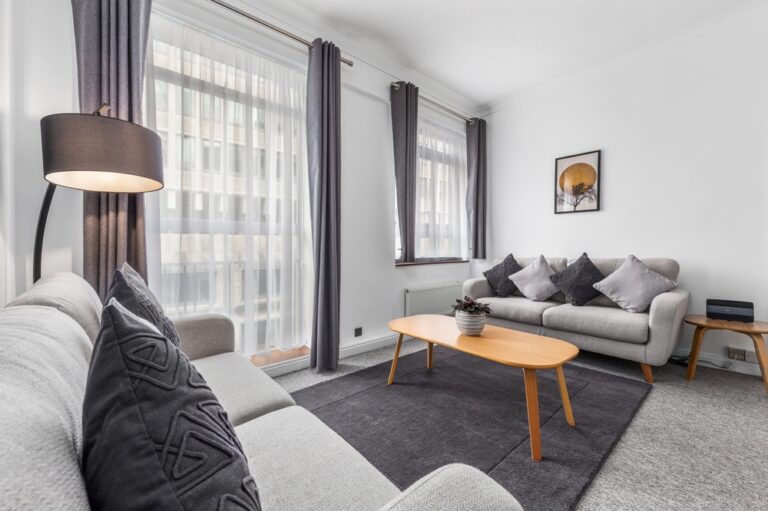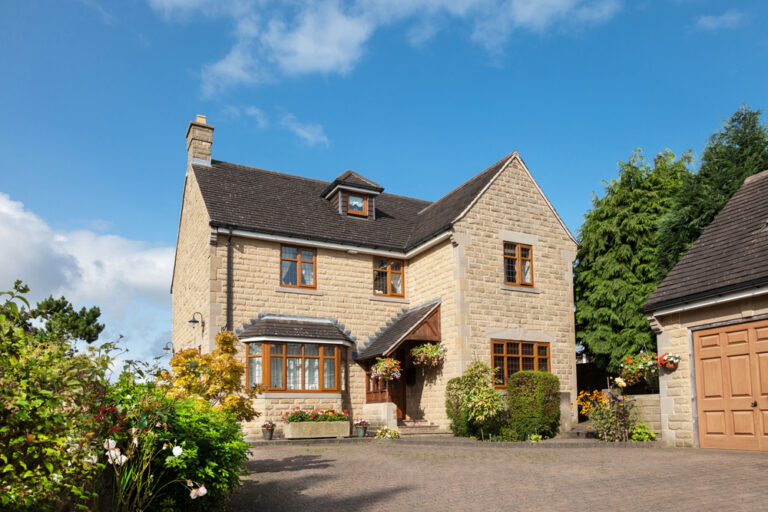Selling a flat can be a complex and emotional process, especially if it’s your first time. But with the right knowledge and preparation, it’s entirely possible to navigate the journey confidently and secure a great outcome.
From setting the right asking price to handling legal paperwork, each stage plays an important role in the overall success of your sale. Knowing what to expect and how to prepare can make a real difference when it comes to attracting buyers and completing the process smoothly.
In this comprehensive guide, we’ll walk you through everything you need to know about selling a flat in the UK, from deciding when to sell to completing the legal formalities.
Related: How long does it take to sell a house?
Why should you consider selling your flat?
There are many reasons why people decide to sell their flat. Some are financial, such as unlocking equity, paying off debts, or reallocating investments. Others are lifestyle-driven, like moving to a bigger home, downsizing, or relocating for work.
Market conditions can also play a role. If demand is high and prices are rising, selling now could mean maximising your return.
You may also be motivated to sell due to high service charges, leasehold complexities, or upcoming building works. If your flat is subject to cladding concerns, a short lease, or challenging management arrangements, it may be a good time to reassess your position and act early before these factors affect your sale price.
How long does it take to sell a flat?
According to Zoopla, the average time to sell a flat in the UK is around 185 days, although this can vary based on location, condition, and market activity.
In cities like London, where competition and leasehold complexities are more common, sales may take longer. Other factors, such as the time of year, the condition of the flat, and its marketing, can also influence the timeline.
It’s also important to note that the legal process, or conveyancing, can take between 8 to 12 weeks. Starting your paperwork early and working with experienced professionals can help reduce unnecessary delays.
Leasing vs selling
If you’re unsure whether to sell your flat or rent it out, consider your financial goals and how involved you want to be in ongoing management.
Selling your flat gives you a lump sum, removes your responsibilities as a landlord, and allows you to move on without ongoing commitments. However, it means you lose future rental income and could be liable for capital gains tax if the flat is let.
Leasing your flat can generate a steady monthly income and allow the property to grow in value over time. On the other hand, it involves managing tenants, handling maintenance issues, and dealing with void periods or rent arrears.
In a slow market, leasing might be a good interim solution. But in a rising market with strong demand, selling may offer a better long-term return with fewer complications.
The flat selling process
Consult whether you are ready to sell
Start by asking yourself why you want to sell. Is it the right time financially? Are you prepared for the process ahead? It’s worth speaking to an estate agent for a market appraisal and to understand how your property is likely to perform.
Manage your finances
Before selling, review your mortgage and check whether there are early repayment charges. Understand how much equity you’ll retain after the sale, and budget for costs including legal fees, estate agency commissions, removals, and any required repairs or upgrades.
Assess the current state of your flat
Take a close look at your flat and identify any potential red flags for buyers. If your lease has fewer than 80 or 90 years remaining, consider a lease extension to maintain its value and mortgageability. Be transparent about cladding, service charges, or any building safety issues that might arise.
Find the right estate agent for you
A good estate agent will have local knowledge, access to a network of buyers, and experience with flats and leaseholds. Compare agents based on how long they take to sell, how often they achieve the asking price, and what marketing support they offer. You may also explore online agents if cost is a concern, though they typically require more self-management.
Gather the necessary documents and certificates
Before listing your flat, make sure you have all the necessary paperwork in order. This includes your title deeds, Energy Performance Certificate (EPC), and leasehold information such as ground rent, service charges, and any major works. You’ll also need to provide a Leasehold Information Pack, which includes forms TA6 and TA7, and you may need to request a management pack from your freeholder or management company.
Flat valuation
Getting an accurate valuation is crucial. Invite a trusted estate agent such as Parkers to assess your flat, and research recent sales of similar properties in your area. Avoid overpricing, as today’s buyers are well-informed and price-sensitive. A realistic figure will generate more interest and improve your chances of a quicker sale.
Related: How to set the right asking price when selling
Staging and viewing preparation
Presentation matters. Clean thoroughly, declutter, and consider a fresh coat of neutral paint if needed. Staging your flat to feel light, spacious, and welcoming can help buyers visualise themselves living there. Professional photos and a well-written listing description will make your property stand out online.
Conveyancing and solicitors
It’s a good idea to instruct a conveyancing solicitor before you accept an offer. This allows you to begin preparing legal paperwork early. Leasehold sales tend to cost more due to the extra documentation involved, with legal fees typically ranging from £1,000 to £1,500. Choose a solicitor experienced in flats and leasehold transactions.
Negotiate and accept offers
Once you receive offers, consider both the price and the buyer’s circumstances. A slightly lower offer from a cash buyer or chain-free buyer may be more appealing than a higher offer with complicated financing. Your estate agent can help guide negotiations to get the best balance of speed and value.
Contract exchange
When all searches are completed, enquiries answered, and both solicitors are satisfied, contracts are exchanged. At this point, the sale becomes legally binding, and a completion date is set. Make sure your finances are in order, especially if you are also purchasing another property.
Completion day
On completion day, the balance of funds is transferred, and legal ownership changes hands. Your estate agent or solicitor will release the keys to the buyer. This is also when your solicitor repays your mortgage, and any remaining fees are settled.
Packing, moving, and collecting the keys
Prepare for moving day by organising removals, updating your address, and disconnecting utilities. Leave the flat clean and in the agreed condition, and ensure all keys, appliance manuals, and access fobs are left for the buyer. Your solicitor will confirm when the sale is officially complete.
Looking to sell your flat?
The UK flat market is getting stronger. In May 2025, home sales went up by 25% compared to April, reaching over 81,000 sales, says HMRC. This rise happened after the Stamp Duty changes in April, which encouraged more buyers to act quickly.
Sales without seasonal adjustment also rose by 42% from April to May. With more people buying, sellers who price their flats fairly and get them ready for sale have a good chance to take advantage of the busy market.
If you’re thinking about selling your flat, now is the time to start preparing. Begin gathering documents, speak to estate agents, and assess your financial position. With the right approach, you can navigate the process with confidence and secure the best outcome for your circumstances.
To get started, book a free valuation with Parkers and speak to your local branch for expert guidance. Our experienced agents understand your area and can help you sell with clarity, speed, and confidence.
Further reading:
When can a house sale fall through







